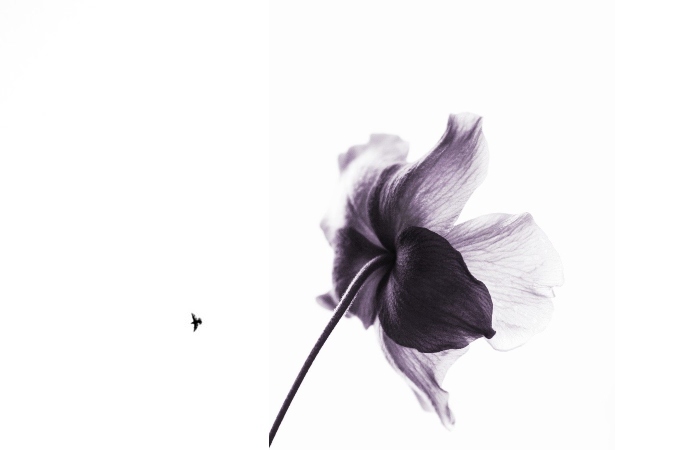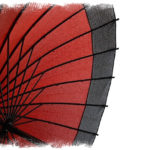All Martial Arts are Gung Fu. They’re all hard work, if not separated from the self. If the practice of Martial Arts is separate from the self, from the way in which a person lives, they’re merely a physical exercise. But if they are inextricable from the self, this leads to the surfacing of the inner self which is dark and swayless. The inner self is the core of being, the universal pool into which you’re immersed when meditating. There are many paths to the pool’s entrance. Martial Art are just one.
When you begin Martial Arts, you experience a superficial emptiness. You don’t know anything, and you feel it. You see other people training who have been doing so for a long time, and you can’t wait until you’ve been training for a long time until you are like them. Which, of course, you never will be. No artist is like any other. You want to be full of knowledge. But advanced Martial Artists are of mushin and know nothing at all.
This is the first part of the cycle of emptying, of letting go of what you think, of letting go of the way you’ve been taught to think and to see, of letting go of notions of yourself that are confined by commodified and external society, by learned self-hatred. You experience emptiness by not being able to follow or to execute physical techniques, by being impatient with the repetition that is required or with the time it takes to be merely proficient in the basics.
You either quit, and hopefully find some other inlet to the outlet of soul, or you keep trying. You’re thinking negatively about not being able to do what they teach in class, or by wanting to learn immediately more than you’re capable of learning (or capable of dealing with the consequences of as the body is a recorder, and can and will replay any previous trauma during physical techniques, whether your conscious self remembers that trauma or not, the body’s truth will out). In countries attacked by the virus of commodity culture, a child is usually taught negativity before positivity. A child is often taught constraints in expression before freedom of expression. So, if someone later has trouble learning something the way its taught, they consider themselves stupid or compare themselves to the accomplishment of others, or put themselves down in some other way. But it’s not negative to have difficulty learning something new. It’s positive.
When something is learned so well that the thought is no longer needed; remembered, executed without conscious thought, that’s the state of no mind or mushin.
If you study The Way (a path to the inner self) through Martial Arts what comes with it, by natural progression, is empathy for all living beings. You know suffering and hardship, so you feel the suffering of others. There is no difference between yourself and any living being. Empathy is in the realm of non-language; the language of it is not spoken or thought. It is. This is the mushin of empathy. Martial Arts are a way of life, a way of conducting yourself through life in a manner of empathy, awareness and a questioning self until thought is not necessary.
The techniques are ABC’s.
You put them together to form sentences.
But the words you’ve learned are superfluous.
They exist only to distract the outer mind
from getting in the way of the inner mind.
You’re still a beginner, but advanced enough to know it. With repetition, your physical techniques improve even if you still struggle with self-hate. You either quit or continue. Your mind is full of techniques occupied by them. The feeling of being empty because you couldn’t do them is supplanted by wanting more of them. You’re afflicted with the technique tapeworm. You want to learn one thing and get onto the next. Sometimes, though, one of the first-hand strikes you learned enters into mushin at this time. You’re doing well, attend every class, volunteer when the instructor needs someone to demonstrate with. You feel physically stronger. The unconscious, the exploration of self, is tucked away in your sweat smelling gym bag.
But then one day you get your butt kicked in front of the whole class despite your myriad techniques, and there’s nothing you can do about it. You either quit or continue.
You quit or turn the other-self. The other-self is the internal self, the centre of mushin. It comes out now, darkness illuminating the candle. You pull into yourself, are quiet, depressed. But your vision becomes clearer because you can see everything. You probably have time, too, because now you’re not going to class, not practising the Outer Way. But the Inner is making bounds from the depths of depression and of the cold examination of self. But the cause of this depression is not failure at physical techniques; it’s the way we’re taught to learn. Watching Gin Foon Mark, the Grand Master of Southern Praying Mantis Gung Fu paint on rice paper. He used light circular movements of the wrist or arm to put a blot of ink on the paper saying “See it’s easy. Very simple. Do you see the bird?” Two quick, free, unpremeditated circles of the brush and the most precise and detailed bird exists on the paper, poised on a branch, head turned to the side. He held the paper up and said “Beautiful, right? I’ll show you how. Do you see?”
You quit or continue. At this point, you could do either for the same reasons. The longer you stay away from class, the more depressed you get. The longer the malaise lasts, the longer you have to cultivate contemplation about your self, about the way you see. Then one night you’re standing back in class, not quite sure how you got there, and not sure why you came. However, it’s the one path that forces you to examine yourself and your reactions – physical, mental, and internal/spiritual. It forces you to constantly try to improve yourself and your way of seeing. You’re back in class, the worst it could do is kill you, which it already has in many ways, so you might as well stay awhile. You continue and begin a whole new phase of training. Trying to be fair to yourself, trying not to compare yourself to others. You sweat more on single techniques or defences concentrating now on only a few, the hunger for quantity gone.
This is the first phase of internal emptiness. You’ve begun Martial Arts as a way of life. The way has become a part of you. You’re a deeper student now, more scarred. But you still have the need to do each technique perfectly. You may only do one, but it will be perfect. The interesting thing about this trying phase is that the more you attempt perfection, the further away you get from it. You think you’re practising the technique; but really, you’re attempting to practice perfection. Because of this, the path to mushin is lost, and the technique is, too. Perfection can’t be sought. It must be. Mushin. It is. But you don’t get this. You just think you can’t do it. This is all positive. It just doesn’t feel like it is.
This is the inaction of the Tao: not that you do nothing, but that you become the action so perfectly it requires nothing. The Grand Masters are simple. Their movement, effortless. They create beauty, turning a blot of ink into a bird with a circle of a brush. They do not restrict what they see. They see everything without preconceived ideas of what it is—experiencing it, not “knowing” it. To draw a person’s face, you have to render it as you see it, and not as you think a face looks. You’re at the erasing your concept of a face on the paper part of the training. Nothing to show but those eraser marks, art scars, from which you will look up sometime soon and finally see the singular, incomparable face of the person in front of you, and how the light hits them at just that moment. And, barely looking at the page, your soul will draw their face.
Though right now, still frustrated, but going to class – having explored the depths of self-consciousness with your body and exposed that weight to the lightness of day and to the lightness of others – you’re conscious of the unconscious basis for needing every single technique to be perfect. Self-hatred and self-consciousness have their roots in abuse. Self-hate is never of mushin. Mushin is a natural state, self-hate a learned one. We’re all born masters of The Way.
But when the external supplants the internal, which is usual in commodified western societies, we lose our balance. We can’t breathe. The soul chokes. But confronting that darkness creates artists, creates the rebellion of empathy, creates the revolution of joy, creates light. Meaning that to be empty, is to be so completely aware that conscious awareness is superfluous. To see everything as it is and not how you think it is or how you were taught it is. To know the darkness of self so that the knowing and the self are superfluous. To have absolute empathy for all sentient beings, so that empathy is superfluous. It is. This is the way of the warrior, which is what you’ve become.



